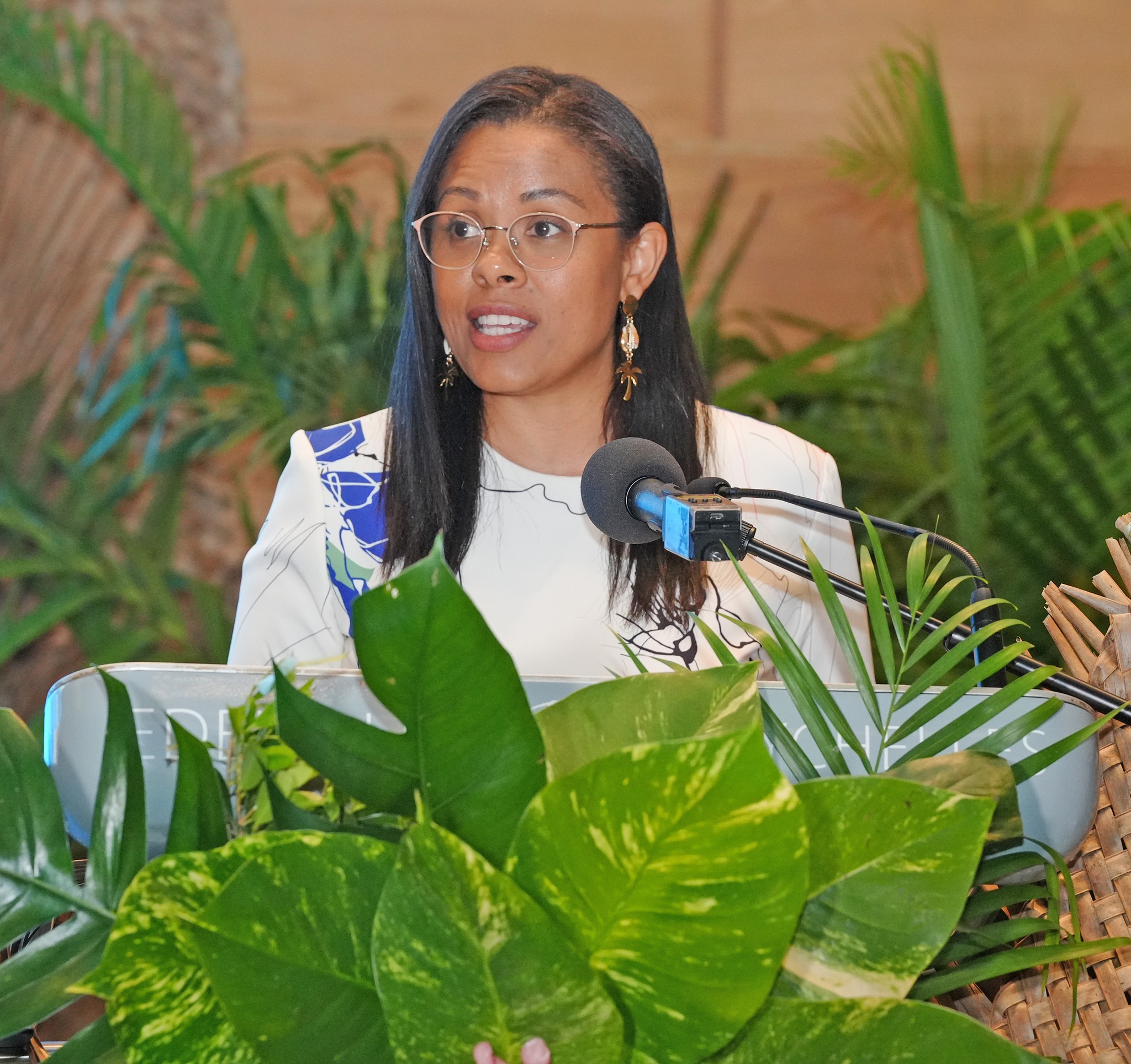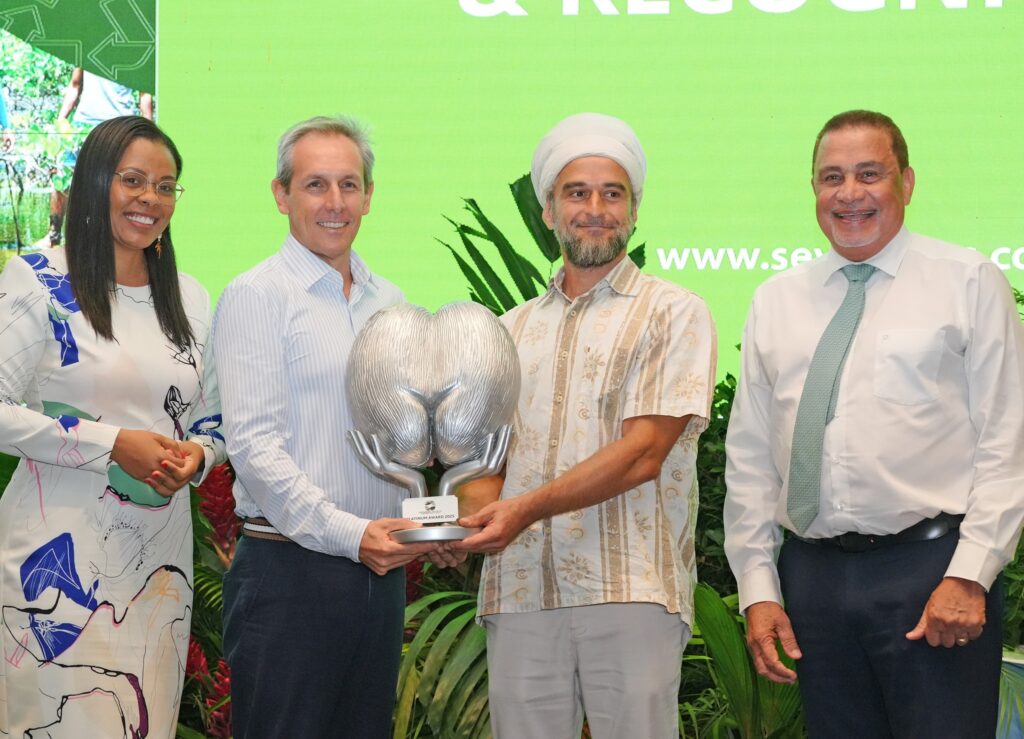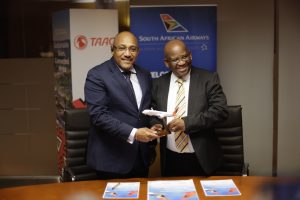Photo Credit: Nessa Lucas, Tourism Seychelles
The Seychelles tourism sector has made a significant stride in its commitment to sustainability with the continued expansion of the Sustainable Seychelles Recognition and Certification (SSRC) Program. The recently concluded certification ceremony, held at the Eden Bleu Hotel, underscored the nation’s strategic vision for responsible tourism by recognizing outstanding achievements across accommodations, restaurants, and tour operators.
The event, graced by key industry stakeholders, celebrated the exemplary dedication of tourism enterprises to environmental conservation, social responsibility, and economic viability. Sherin Francis, Principal Secretary of the Seychelles Tourism Department, provided valuable insights into the evolution of the program, highlighting its role as a structured framework designed to institutionalize sustainability practices across the sector.
The SSRC initiative has undergone a significant transformation since its inception. Initially introduced as a sustainable tourism label over a decade ago, it became evident that the industry required a more structured and supportive framework to foster meaningful and measurable progress in sustainability. Recognizing this need, the initiative evolved into a tiered program, allowing businesses at varying levels of sustainability implementation to be acknowledged and supported in their journey.
Sherin Francis remarked on this shift, stating, “To encourage tourism stakeholders to embark on the sustainability journey, we must celebrate incremental progress rather than focus solely on end goals. By providing structured recognition, we offer both motivation and guidance, ensuring sustainability becomes an operational standard rather than an aspirational concept.”

Department
Photo Credit: Nessa Lucas
To facilitate this structured progression, the program now features three distinct recognition levels—Blue, Bronze, and Silver—each serving as a milestone towards full certification. Certification, which represents a higher commitment to sustainability, is valid for two years and requires properties to undergo reassessment to demonstrate continued improvement.
The ceremony marked a pivotal moment in the program’s history with the introduction of the Platinum Certification, an honor reserved for tourism enterprises that have fully embedded sustainability principles into their operational framework.
The inaugural recipient of this prestigious distinction, Constance Ephelia, set a benchmark for sustainability in the Seychelles hospitality industry. In recognizing this achievement, Francis noted, “Certification alone does not fully encapsulate the depth of commitment demonstrated by this property. Sustainability is no longer a checklist—it is embedded in the corporate culture, reflected in every aspect of operations, and embraced by staff and guests alike.”
The Platinum Certification reinforces the program’s commitment to rewarding excellence beyond compliance, positioning Seychelles as a leader in sustainable tourism within the African and global tourism landscape.
The Sustainable Seychelles Recognition and Certification Program has also extended its scope beyond accommodation providers to include restaurants and tour operators. This expansion underscores the government’s commitment to fostering an integrated and comprehensive approach to sustainability within the tourism value chain.
At the most recent ceremony, five restaurants were formally recognized for their sustainability initiatives. Additionally, future ceremonies are expected to acknowledge tour operators, further broadening the program’s reach. “We aim to eventually cover the entire tourism industry, ensuring that sustainability becomes a shared responsibility across all sectors,” Francis affirmed.
A core tenet of the SSRC initiative is the principle that sustainability is a continuous process rather than a static achievement. Certified properties are required to undergo reassessment after two years, demonstrating measurable improvements to retain their status.
During the latest certification cycle, six properties successfully completed the recertification process, bringing the total number of certified properties to 25. This milestone reflects the growing commitment of the Seychelles tourism industry to sustainability, a process that has taken nearly a decade to solidify.
Francis emphasized the significance of this achievement, stating, “Sustainability is a journey, not a destination. The recertification process ensures that entities remain at the forefront of best practices, continuously refining their approach to align with evolving environmental and social standards.”
The Sustainable Seychelles Recognition and Certification Program extends beyond mere acknowledgment; it provides structured guidance, resources, and incentives to support businesses in their sustainability endeavors. Participants gain access to technical expertise, industry best practices, and strategic support to navigate the complexities of sustainable operations.
In a further effort to align Seychelles’ tourism industry with global sustainability benchmarks, Francis announced the integration of additional incentives for certified entities. These include alignment opportunities with Series 10-Certification and Slow Life Experiences, frameworks designed to enhance industry standards and competitiveness on the international stage.
The success of the SSRC initiative offers valuable insights for other nations seeking to balance tourism growth with sustainability imperatives. By fostering inclusivity, celebrating incremental progress, and maintaining rigorous standards, Seychelles has established a model that can serve as a blueprint for sustainable tourism development across Africa and beyond.
As Francis aptly stated, “Sustainability is not just about preserving our natural assets—it is about securing a legacy that benefits businesses, communities, and future generations.”
With 94 properties now recognized and 25 fully certified, the program exemplifies how a structured, incentive-driven approach can drive systemic change in tourism sustainability.







